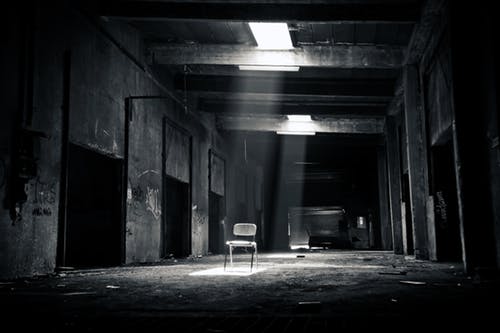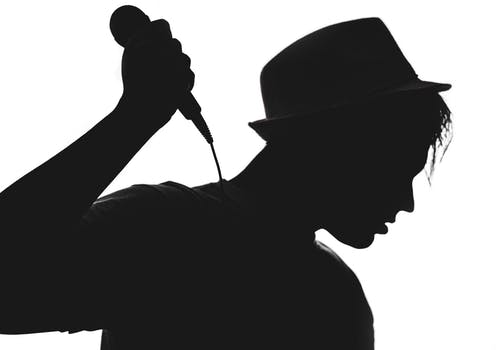Learning how to sing darker tones can greatly improve your singing ability
Singing darker is one thing most musicians try to accomplish in their career.
While doing so makes you become a better singer, how to do it is where most people struggle
If you have ever struggled with how to change your singing tone to dark, then this article is for you.
In this article, I will be giving you 7 tips on how you can sing darker and how to ensure that you do so without any permanent damage to your vocal chords.
Here is an article I wrote showing you how to become a better singer
[thrive_leads id=’5517′]
What is a bright or dark sound?
Before we begin, we need to make sure that we are familiar with the basic terms of what a dark sound or bright sound means
Quite simply a bright sound is one with more overtones and harmonics while a dark sound is a sound with more low overtones and harmonics
What this means is that for example, vowel AA in “cat” is bright while vowel OO in soon is dark.
However things might not be as straightforward as it seems and this is where it might get complicated for some people
These aspects are not necessarily antagonic and and the coordinations are not necessarily linked to the vowels that you use
Most times you can use bright and dark tones at the same time and get away with it
For example, observe your voice when you need to give authority or create a sense of urgency.
So if you spot your dog chewing your shoes or the mic cable in your studio, then your voice is going to have both a dark and bright tone at the same time
Or let’s say you spot your kid trying to poke an electric outlet with a metal fork. You voice tone is going to definitely darken with authority and some sense of urgency
While all these are normal examples for our daily lives, they can also be applied while singing
So let’s look at simple tips to darken your voice while singing
If you want to become a better gospel singer, check out this article here
How can I darken my voice?

1. Your vocal cords vibrate at or around the pitch you are singing.
What this means is that you obviously cannot go above your vocal pitch just to get a bright or dark tone
So as long as your vocal cords are vibrating within that frequency, then that is the pitch you are going to sing with
2. The 2 most relevant other pitches that you can control almost directly are the pitches that make up the vowel, which is determined by the space between your tongue and the roof of your mouth (tongue up = oo vs. tongue down = aah) + the space between your tongue and your lips/teeth (tongue back = oo vs. tongue forward = ee).
3. There is a bunch of other stuff (resonant spaces) that you can mess with. Some of these are not too difficult to control, but take you away from using your body in ways that come naturally through speaking.
The easiest example is opening your mouth more. You’re likely increasing the volume (in a geometric sense, not loudness) of a few resonant spaces by doing that. That means all of the pitches corresponding to those spaces will drop, because bigger things resonate at lower frequencies.
4. Darkness” is going to involve opening up these various spaces in your head/neck a bit more, along with potentially putting your tongue on the darker side of the vowels (whisper an “ee”, and try brightening it by whispering more of a “hyhee”). Vowels have a range of frequencies for front/back and top/down that will still sound like the vowel.
5. Try to go back and forth between “oo” and “ee” really slowly, and you can actually hear this slide whistle effect as the vowel changes.
Hearing this happen totally blew my mind.
I’ve never seen/heard a better demonstration connecting the physicality of the voice to the human perception of thought and language.
6. Try keeping an ee vowel and opening your mouth up a lot.
The vowel will get destroyed and you will sound weird unless you raise the “fat part”/middle of the tongue up at the same time (keep the tip anchored to the bottom teeth).
Play around with how different you sound with your jaw dropped vs. your jaw in a position closer to the speaking position you have with an ee sound.
It will likely be a lot different, and the jaw-dropped version will be “darker.”
There are a bunch of other resonant spaces that can contribute to a “dark” sound, but this one is the easiest to control and perceive.
7. It has to do with the placement of the pharynx since I’ve heard some singers sing who seem to pharyngealized their vowels to darken them without changing anything else about the vowel, although I’m not sure since I’m not in your choir.
Anyways, please don’t nasalize all your vowels or start saying [y] instead of [u], since I’m sure that’s not what that means and that would really mess up singing in French and sort of mess up singing in German.
Just sing the vowel you’re supposed to have in the song.
Finally, learning how to sing with darker tones is a skill you want to learn and perfect.
It will definitely separate you from the newbie singers out there
Related: You definitely want to check out this article that shows you how to breathe while singing
[thrive_leads id=’5517′]


One Comment
Leave a ReplyOne Ping
Pingback:Can a Singer Hit Two Notes at Once? - Music and Entertainment